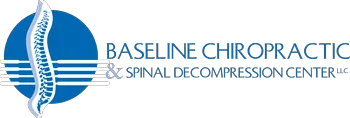Being an informed patient is an empowering concept.1 In the modern healthcare marketplace, the doctor-patient relationship has become a two-way street. It's no longer a situation in which the doctor tells the patient what to do. Today, patients can be full partners in managing their care and well-being.2
What does it take to be an informed patient, one who can participate in a meaningful way and not be merely the passive recipient of the doctor's instructions and recommendations?
The first key is to identify a doctor - a chiropractor or family physician, depending on the circumstances - in whom you have confidence. Here are a few essential points to consider
- The doctor has spent enough time with you on the first visit
- The doctor has focused on you, and has not been distracted by all the other things happening in the office
- The doctor has satisfactorily answered all your questions
- The doctor's recommendations are clear, and you understand what the next steps are going to be
The questions you ask are not just to keep talking and capture more of the doctor's time spent with you. An informed patient does some preparation - some homework - before the actual office visit. The Internet offers a lot of valuable information on both chiropractic and medical treatment. And, it's important to remember that not all information is accurate and authoritative - consider the source of the "information".
- Consider the author's background and affiliations
- Consider the potential for bias
- Is the site itself up-to-date - for example, are there "dead links" on the site
Do your best to evaluate the doctor's recommendations. First, what are the expected results? How quickly should you begin to feel better? Are there potential side-effects of the recommended treatment? What are the alternatives?
Alternatives may include other forms of therapy within the doctor's office and may also include consultation with another specialist. The main point is not to be left with a confusing array of choices, but to have enough information to go forward with a treatment plan that makes the most sense, both to your doctor and to you.
If a prescription is involved, make sure you write down the exact spelling of the medication and the exact dosage and frequency. Prescriptions are usually scribbled, and both doctors and pharmacists can make a mistake. Don't let your doctor simply hand you an illegible piece of paper. Insist on ensuring that you understand what is being prescribed, and be sure to ask your doctor about potential side effects, risks, and interactions with any other medicines you may be taking.
As in all relationships, the doctor-patient relationship is based on clear communication and mutual trust and understanding. You can help your doctor help you by being informed and participating in the decision-making process.
1Informed Consent. "Ethics in Medicine". University of Washington School of Medicine. http://depts.washington.edu/bioethx/topics/consent.html#ques1
2"Be an active healthcare consumer". Agency for Healthcard Research and Quality. http://www.ahrq.gov/path/beactive.htm
